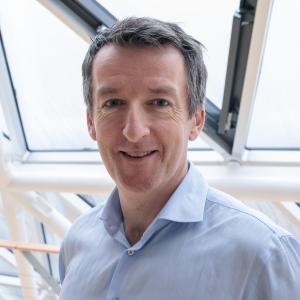New Denmark sustainable fertilizer technology links the need to feed a growing world population with the fight against greenhouse gas emissions
Find out how scientists at a 78-year-old Danish company are developing innovative solutions for today’s environmental concerns:
- Without fertilizer world could feed only 4 billion of its current 7 billion people
- Innovative technology cuts energy consumption for the production of ammonia (for fertilizers) by 3%
- Energy efficient ammonia means less greenhouse gas produced in making the fertilizers needed for a growing population.
Subscribe to Future Europe on iTunes, Spotify and Acast.
Future Europe features a podcast episode from each of the EU’s 28 Member States. Each episode tells the story of a project that illuminates the way Europeans will live in the future. All the stories are told through the voices of people involved in the projects.
Denmark sustainable fertilizer answers climate and food needs
Dr. Kurt Agerbæk Christensen and other researchers at Denmark’s Haldor Topsoe have made big advances in the energy efficiency of processes to produce ammonia, which is used to make synthetic fertilizers. That’s important, because using too much energy creates greenhouse gas emissions, even as the need for fertilizer rises to feed the world’s growing population.
“Plants need fertilizers and fertilizers need ammonia,” says Agerbæk Christensen, the senior director for research and development. “It’s estimated that without these fertilizers the globe would only support around 4 billion people and we’re actually 7.7 billion people today. In the long-term we would prefer a world without need for synthetic fertilizer, but just now we have to say we would lose nearly half the world’s population” without it,
Haldor Topsoe currently spends 10% of its revenues on research and development. Thanks to a €75 million loan from the European Investment Bank, it has been able to invest considerable effort in much needed new technologies.
Denmark sustainable fertilizers means cleaner, more efficient chemical processes
The EIB loan to Haldor Topsoe has assisted in four key areas:
- Development of a new chemical process to create plastics from sugar cane, reducing dependence upon highly polluting fossil fuels
- Continual development of more efficient catalysts to produce clean fuels and treat off gases from industry to reduce air pollution
- Creation of a more efficient method for the production of ammonia (used in fertilizers) reducing energy consumption
- Ongoing research and development for catalytic technologies in a range of industries aimed at improving the energy efficiency of industrial processes, so reducing the emission of greenhouse gases.
Topsoe has been also been using its research to transform sugar cane into plastic – reducing dependence upon highly polluting fossil fuels. Until recently, turning sugar cane into a usable base for plastics has been a complicated multi stage process. But with Topsoe’s newly developed catalysts it has become easier and more efficient.
Finance for Denmark sustainable fertilizer
Delia Fornade is an EIB loan officer who has worked closely with Haldor Topsoe. She is gratified to see what the company has been able to achieve.
“Getting plastic from plants it is a very long, complicated and therefore costly process,” she says. “The breakthrough the company has achieved gives us hope that plastic can be made from plants on a cost effective, industrial scale.”
Topsoe is already talking to other companies about using the new plastic into drinks bottles, toys and furniture.
Carsten Andersen, the company’s treasurer, is passionate about this aspect of the company’s work. “It is very close to my heart. We need to look to a future that is not totally dependent on hydrocarbons and uses more sustainable sources. Compared with commercial bank funding the EIB is definitely more attractive. It is flexible, easy to work with and borrowing is markedly cheaper than anyone else.”
Dr. Kurt Agerbæk Christensen believes the benefits of the new products will be widely felt. “I am always optimistic about the future of the world and I think this is an important piece of that future”
